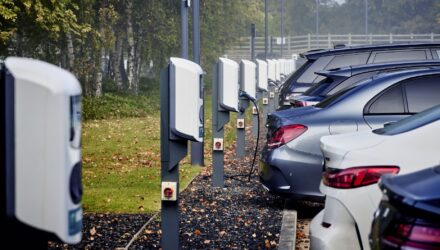
Pump it up
UK business back motoring but diesel drivers shouldering cost of lower petrol prices
Latest figures released by HMRC have revealed that both business and private drivers clocked up more miles this February as they took advantage of fuel prices which were 22p a litre lower than 12 months ago.
Total fuel sales were up 3.5% – 133 million litres – on February 2014 with 3.8bn litres of petrol and diesel sold which netted the Treasury £2.24bn in fuel duty revenue – £78m up on the same period last year.
As fuel prices tumbled motorists have been making greater use of their cars, and a growing economy has led to stronger diesel sales due to business dependence on the fuel. This trend was less evident in January when there is traditionally a big dip in fuel sales following the expense of Christmas and a widespread case of the winter blues.
February 2015 saw diesel sales at the fifth highest monthly total since 1990 with total sales of 2.42bn litres at an average retail price of 114.84p; the highest recorded month was November 2014 with sales of 2.5bn litres. Sales of diesel were up 4.5% this February compared with the previous year when the average price of diesel was 136.99p a litre.
Petrol sales were up 2% in the same period but, in contrast to diesel, represented the eighth lowest monthly total since 1990, with 1.48bn litres sold – with an average pump price of 107.97p per litre (February 2014 – 129.57p). The lowest recorded month was March 2013 when just 1.3bn litres of petrol were sold with the average pump price at 138.93p.
RAC fuel spokesman Simon Williams said: “It’s hard not to think that business is being taken for a ride by the fuel retailers. Traditionally, business runs on diesel, and with sales of diesel at an all-time high the retailers have maintained a higher margin on diesel, perhaps to subsidise petrol sales.
“While clearly some businesses with big, high mileage fleets buy their fuel ahead of time to manage their fuel spends in case of price fluctuations, the prevailing view is that businesses are less price sensitive than consumers which possibly leads retailers to keep margins higher on diesel than petrol. In doing so they appear to be keeping the country’s 20m private car drivers sweeter. The reality is that pricing of petrol and diesel does vary between retailers with some choosing to more closely reflect the wholesale price of diesel rather than keeping it artificially higher.”


















